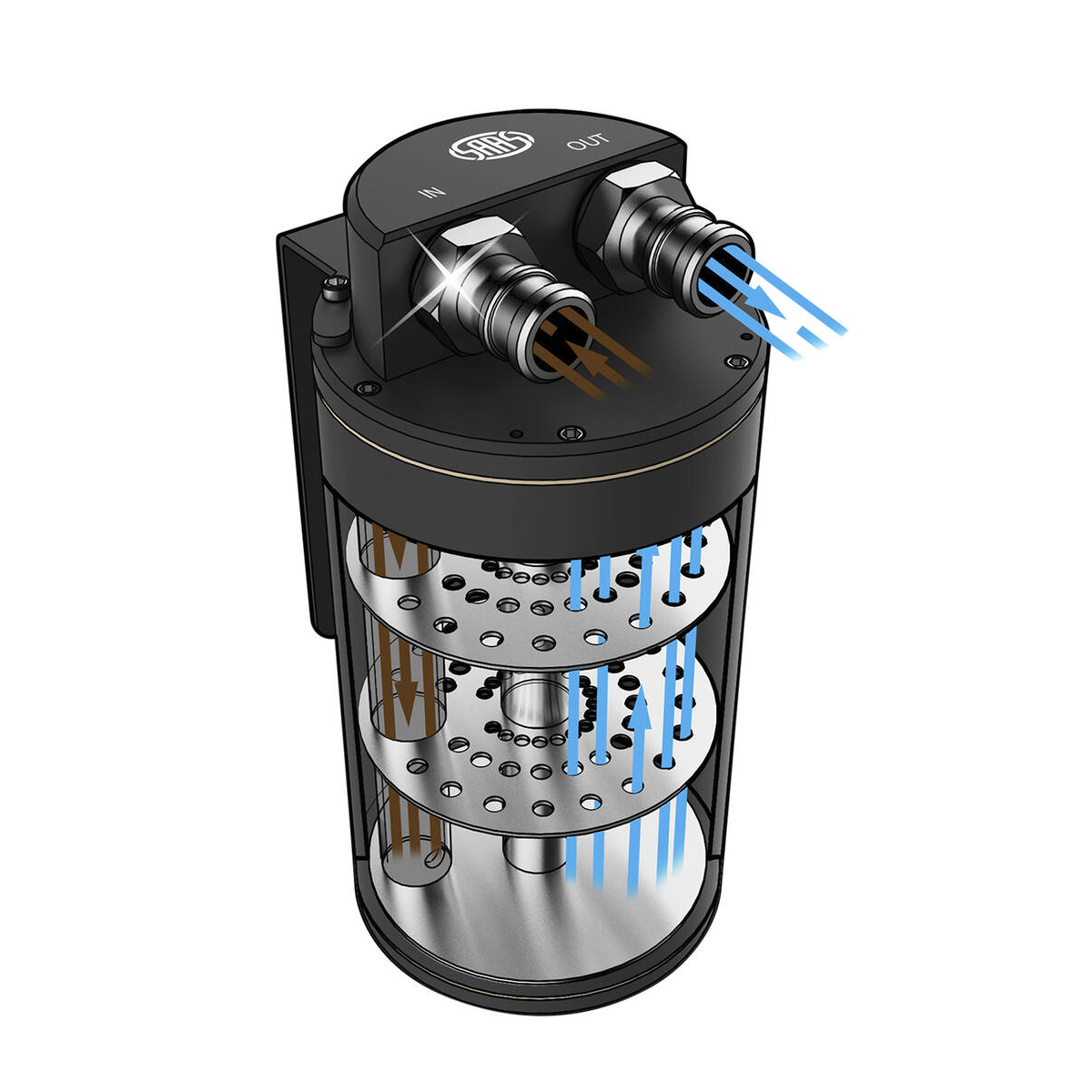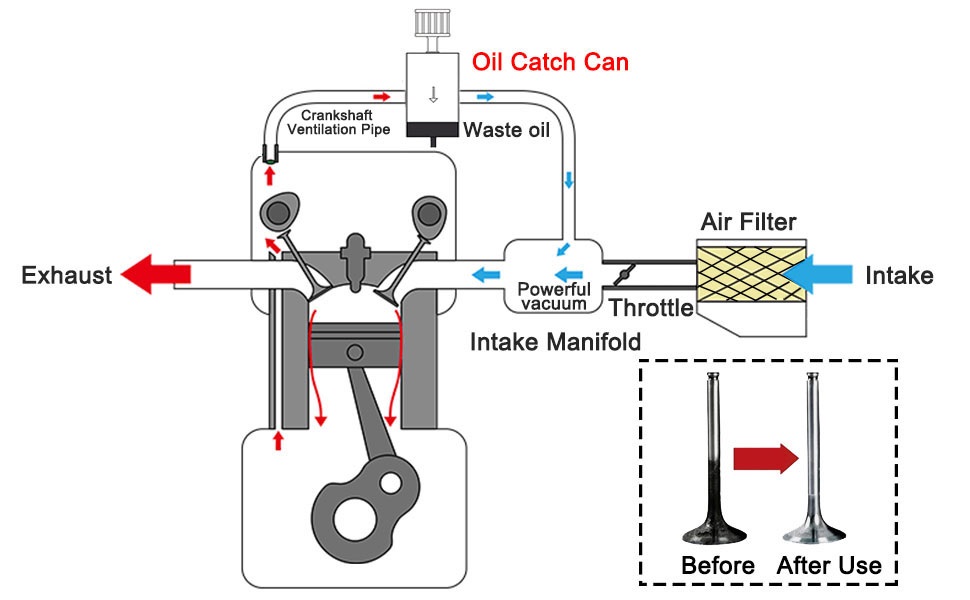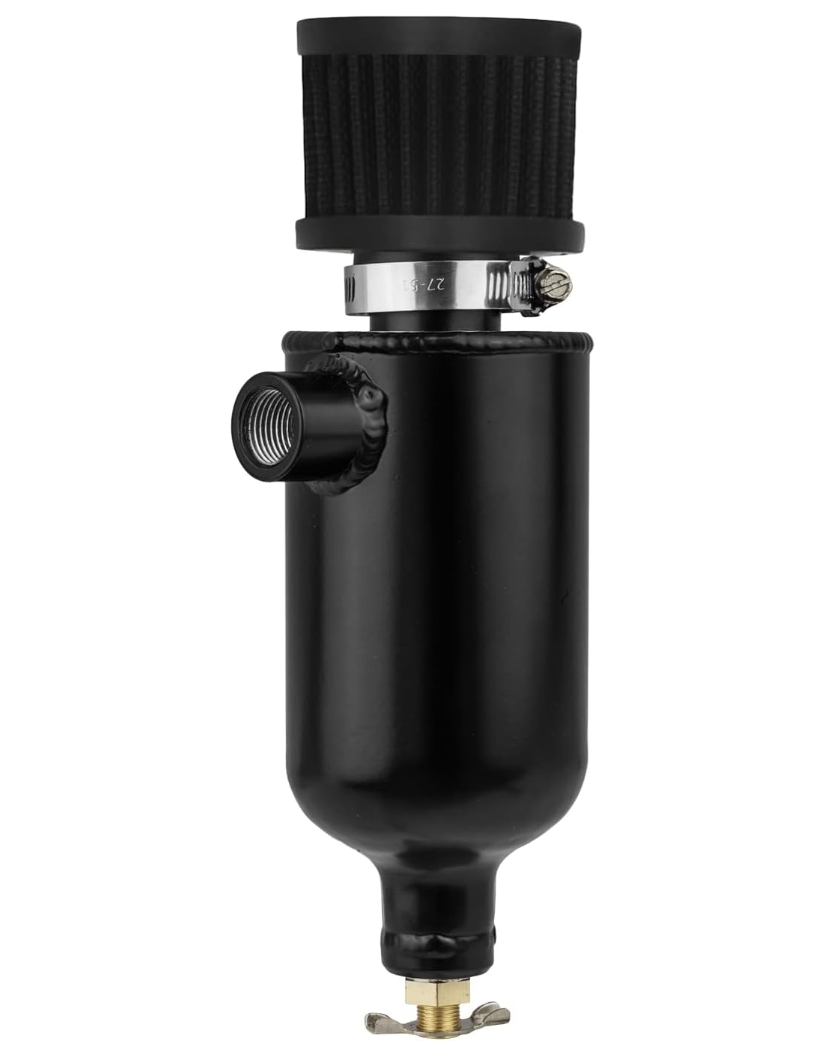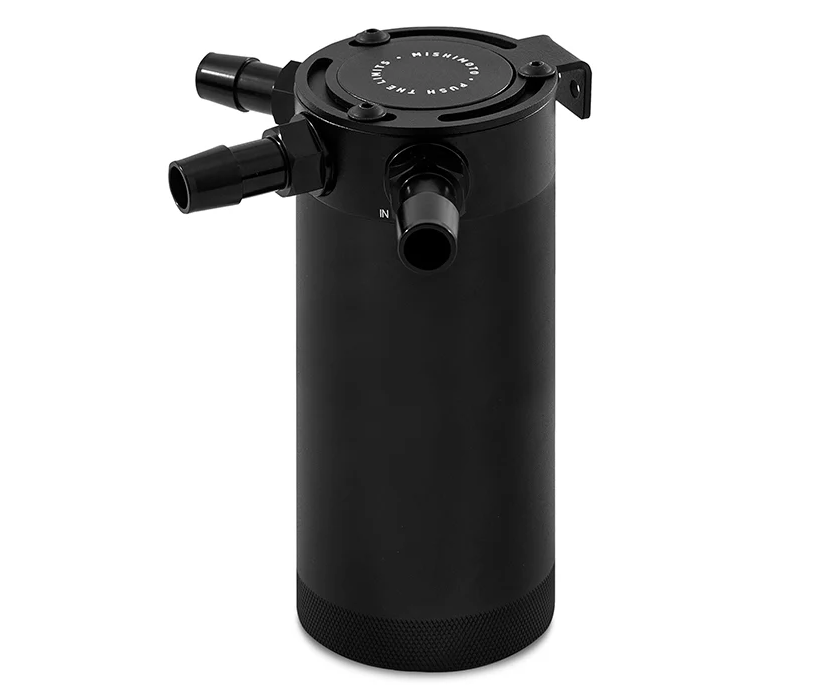Net price: 42 €
Net price: 41 €
Net price: 70 €
Net price: 29 €

Oil catch tanks prevent oil vapor from re-entering the engine, enhancing performance and protecting the engine from harmful deposits. Learn more here!
Oil Catch Tanks Explained: Operation, Types, and Benefits
How Oil Catch Tanks Work
The function of oil catch tanks is to separate oil vapor and other contaminants from the engine's ventilation system. In race cars, engines are under high stress, leading to increased oil vapor production. This vapor can enter the intake system, causing deposits that reduce engine efficiency and performance. Oil catch tanks work by changing airflow direction and separating particles, ensuring only clean air returns to the engine.

Types of Oil Catch Tanks
Single Port Tanks: Simple design with one chamber where oil vapor condenses. Cost-effective but with limited efficiency.

Baffled Tanks: These tanks contain baffles that slow airflow and help oil droplets settle. Recommended for race cars producing significant oil vapor.

Multi-Port and Filtered Tanks: Advanced designs with multiple chambers and filters that capture the finest oil particles. Ideal for modern, direct-injection engines.

Benefits of Oil Catch Tanks in Race Cars
Engine Protection: Prevent oil vapor from returning to the intake, reducing the risk of deposits and engine damage.
Performance Maximization: Clean air improves combustion efficiency, reducing knock risk and increasing engine performance.
Fuel Efficiency: Reduces the amount of unburnt oil, improving fuel consumption and lowering racing costs.
Summary
The oil catch tanks offered by the LLRacing webshop are an excellent choice for any race car owner looking to ensure maximum engine performance and longevity.